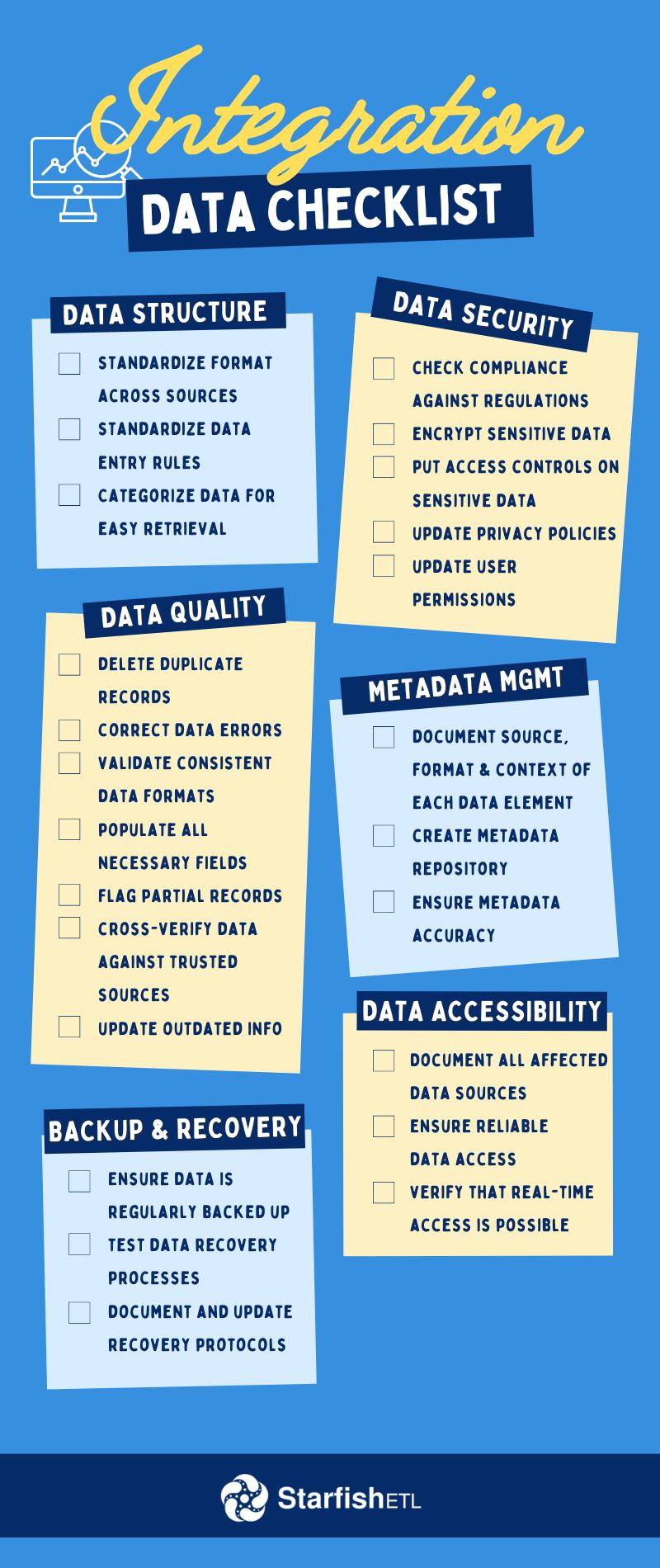Data integration projects can significantly improve operational efficiency, provide deeper business insights, and enhance data accessibility. However, the success of a data integration relies heavily on the readiness of your data.
Before embarking on your data integration journey, it’s crucial to ensure your data is primed for the seamless transition you are aiming for. Here’s a comprehensive checklist to help determine if your data is ready for an integration project.
1. Data Quality Assessment
Cleanliness:
- Check for duplicate records and remove them.
- Identify and correct erroneous entries (e.g., misspellings, incorrect dates).
- Validate data formats are consistent (e.g., date formats, phone numbers).
Completeness:
- Ensure all necessary fields are populated.
- Verify that partial records are completed or flagged.
Accuracy:
- Cross-verify data against trusted sources.
- Update outdated information.
2. Data Structuring and Standardization
- Ensure data from various sources follows a uniform structure or format.
- Standardize data entries to adhere to one consistent format (e.g., use of full state name vs. state abbreviations).
- Implement data categorization for easy classification and retrieval.
3. Data Security Compliance
- Check compliance with relevant data protection regulations (GDPR, HIPAA, etc.).
- Ensure sensitive data is encrypted and access-controlled.
- Review and update data privacy policies and user permissions.
4. Metadata Management
- Document the source, format, and context of each data element.
- Create a metadata repository if not already in place.
- Ensure metadata is accurate and up-to-date.
5. Data Governance
- Establish clear data ownership and stewardship responsibilities.
- Implement and enforce data quality standards.
- Regularly audit data for quality and compliance.
6. Data Accessibility
- Identify and document all data sources that will be part of the integration.
- Ensure there is a reliable method for accessing data from each source.
- Validate that data can be accessed in real-time if necessary for the project.
7. Backup and Recovery Procedures
- Ensure backup systems are operational and data is regularly backed up.
- Test data recovery processes to verify they work correctly.
- Document and update recovery protocols.
Conclusion
Preparing your data for integration is essential to ROI and ensuring long-term scalability as your company grows. Remember, the quality of your data integration largely depends on the quality and readiness of your data at the outset. Use this checklist to make that process less stressful and help ensure your integration delivers lasting benefits to your organization.
If you need help with your data preparation, StarfishETL offers comprehensive services that take data cleaning, enhancement, and organization off your plate. Reach out to learn how we can support you!
Posted in: 

